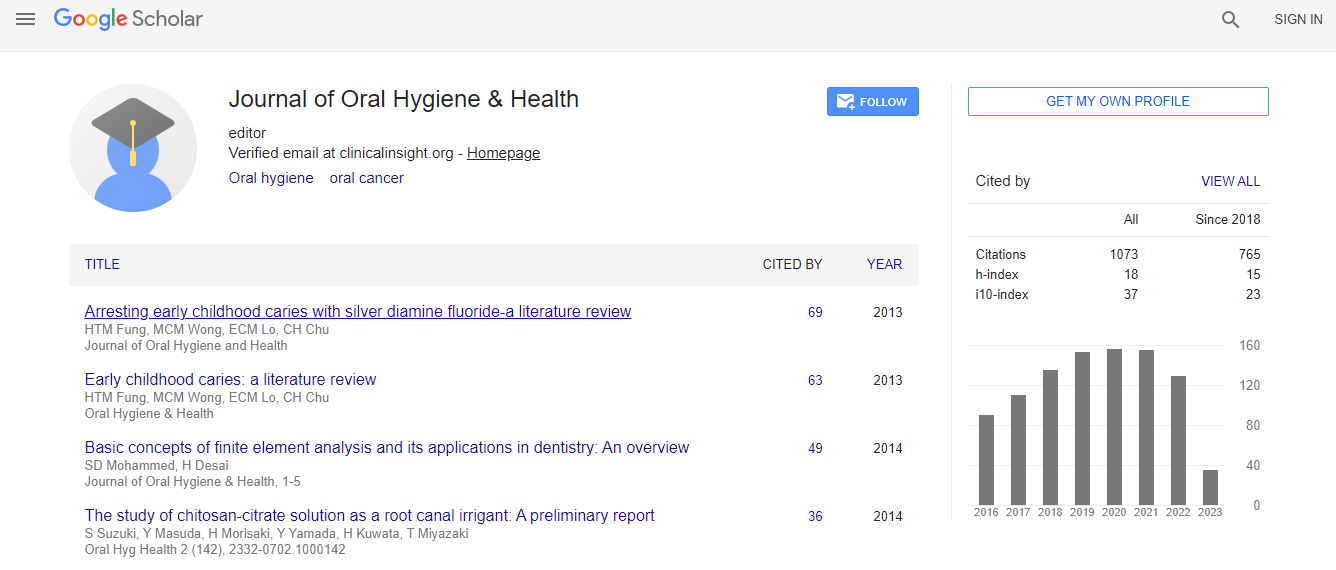Research Article
General and Oral Health Related Behaviors among HIV Positive and the Background Adult Tanzanian Population
Febronia Kokulengya Kahabuka1*, Poul Erik Petersen2, Hawa Shariff Mbawala1 and Nanna Jürgensen2
1Department of Orthodontics, Paedodontics & Community Dentistry, Muhimbili University of Health and Allied Sciences, School of Dentistry, Dar es Salaam, Tanzania
2Department for Global Oral Health and Community Dentistry, Faculty of Health Sciences, Centre for Health and Society, School of Dentistry, University of Copenhagen, Copenhagen , Denmark
- *Corresponding Author:
- Febronia K. Kahabuka
Department of Orthodontics
Paedodontics & Community Dentistry
School of Dentistry, Dar es Salaam, Tanzania
Tel: 255 22 215 11 35
Fax: 255 22 215 04 56
E-mail: fkahabuka@muhas.ac.tz, kokukahabuka@yahoo.com
Received Date: August 19, 2014; Accepted Date: September 09, 2014; Published Date: September 15, 2014
Citation: Kahabuka FK, Petersen PE, Mbawala HS, Jürgensen N (2014) General and Oral Health Related Behaviors among HIV Positive and the Background Adult Tanzanian Population. J Oral Hyg Health 2:162. doi:10.4172/2332-0702.1000162
Copyright: © 2014 Kahabuka FK, et al. This is an open-access article distributed under the terms of the Creative Commons Attribution License, which permits unrestricted use, distribution, and reproduction in any medium, provided the original author and source are credited.
Abstract
Objectives: To assess the general and oral health related behaviors among HIV positive adults and the background population.
Methods: A case-control study utilizing a structured questionnaire to collect data. Cross tabulations and Chisquare statistics were conducted for bivariate analyses and simple logistic regression was used for multivariate analyses
Results: 898 individuals aged 15-80 years participated in the study of whom 66.8% were females. Slightly more than half (51.2%) self-reported to be living with HIV/AIDS. Of the health behaviors investigated, positive behaviors frequently reported were: hand washing, eating fresh fruits, eating green vegetables, infrequent snacking or consumption of sweetened soft drinks, not smoking or consuming alcohol. Behaviors seldom reported were; tooth brushing (twice a day), use of fluoride toothpaste and regular dental visits. The OR for reporting hand washing before eating among people living with HIV/AIDS was 0.5 (0.3, 0.9). People living with HIV/AIDS had significantly higher odds for daily eating of fresh fruits and vegetables, OR 2.2 (1.6, 3.1) and 1.7 (1.2, 2.3), respectively. They were as well less likely to smoke and consume alcohol than the comparative general population. They were significantly less likely to use sweetened soft drinks (OR 0.6 CI (0.4, 0.8) but more likely than the general population. to have not used fluoridated toothpaste.
Conclusion: From the findings of this study, we conclude that most HIV positive individuals had better general health behaviors than the background population but only a few (18%) had good oral health behaviors (using fluoridated toothpaste and dental visit due to oral problem). HIV positive individuals should be encouraged to maintain positive health behaviors and be facilitated to practice the positive behaviors currently reported by few.

 Spanish
Spanish  Chinese
Chinese  Russian
Russian  German
German  French
French  Japanese
Japanese  Portuguese
Portuguese  Hindi
Hindi 
